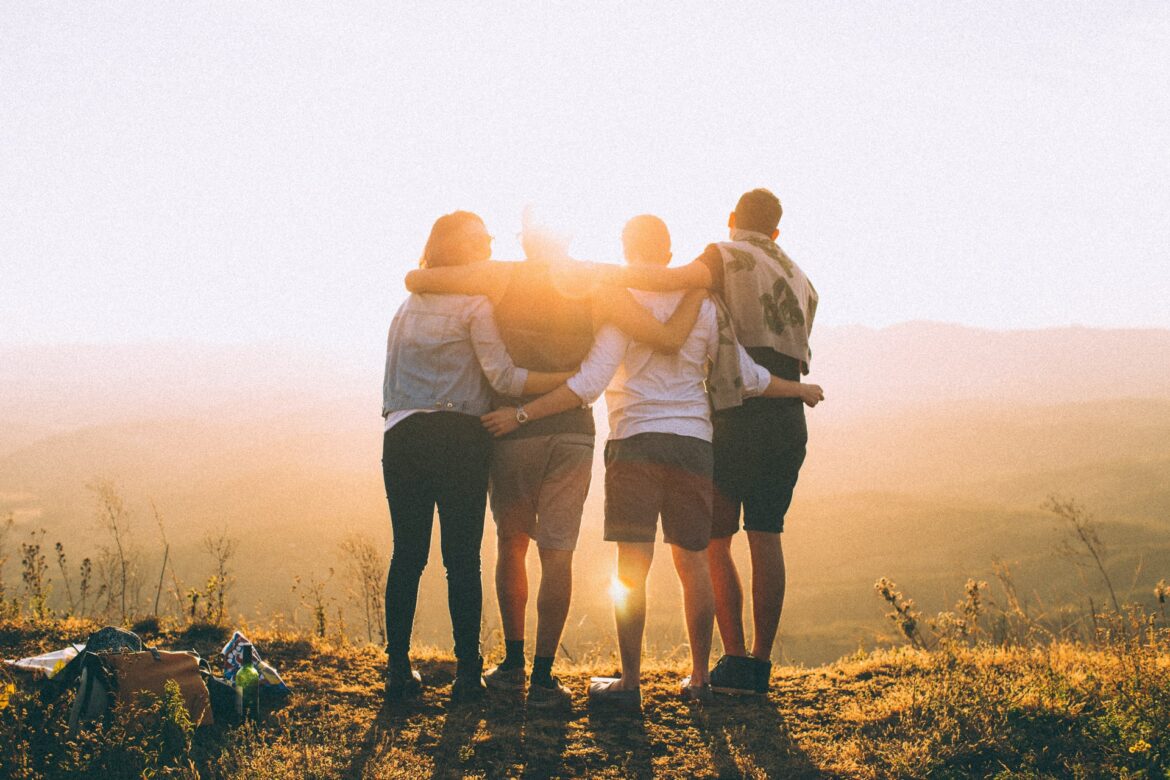Our spring issue is out now! Our regular contributor and sustainability correspondent Davie Philip shares his insights on we can make more environmentally conscious decisions together – Dive on in!
The Beauty of
Indigenous Wisdom
Facing Bigger Than Self Problems Together
By Davie Philip
“There is no such thing as a solitary individual. A person is a person through other persons.”
Desmond Tutu
To make sense of the world, and respond to the challenges we face in meaningful ways, requires us to think differently. Transcending the individualistic world-view that is fuelling nature’s rapid degradation, and undermining our personal and collective well-being, demands far-sightedness and a world-view that recognises our interconnectedness with all of life. World-views shape how we think the world works. They are formed over time, are how we discern between right and wrong, and inform everything we do.
We now need a world-view that helps us expand our imaginations, value kindness, empathy, care and act in solidarity. To positively change the way we live and cultivate a harmonious relationship between society and nature, requires us to embrace an ecological world-view, a shift from a mechanistic to a living systems perspective, one based on wholeness, relationship and change. Might there be insights from different cultures of the world that can help us reorientate, and root our actions in values that support this shift? As we search for more satisfying and sustainable ways to live on this planet, could indigenous world-views offer lessons to help us face the future?
“ Indigenous ways of knowing are again based on inclusiveness and the interdependence of all species, prioritise harmony and collective well-being”
For the Haudenosaunee, an alliance of native American nations, the Seventh Generation principle applies, in that the decisions we make today should result in a healthy world seven generations into the future – was integral to their way of life. Could this philosophy of long-term thinking and intergenerational solidarity help us overcome our society’s myopic short-termism?
The concepts of Buen Vivir, meaning ‘the good life together’, or Sumak Kawsa, ‘good living’, are from the ancestral traditions of the Quechua people. Similar variations of communitarian principles are found in other cultures of the South American Amazon. The Kanaka Maoli, the indigenous or aboriginal people of the Hawaiian islands – their indigenous ways of knowing are again based on inclusiveness and the interdependence of all species, prioritise harmony and collective well-being. Deeply rooted in the virtues of respect and compassion toward others is Ubuntu, a world-view from southern Africa that translates as “I am a person through other people – my humanity is tied to yours”.
The late Desmond Tutu described Ubuntu as the ‘essence of being human’, saying, “you can’t be human all by yourself, when you have Ubuntu – you are known for your generosity.” Ubuntu is essentially about togetherness and expresses the interconnectedness, common humanity and the responsibility of individuals to look out for each other. The opposite of Ubuntu is expressed in the derogatory term ‘mé féiner’, used in Ireland to describe a person who only looks out for themselves, adapted from the Irish word for myself ‘mé fein’. Understanding the importance of relationships with others and with all life, and that in this fragile, interconnected world, our individual well-being is dependent on us acting together on behalf of the whole. These holistic and community world-views from indigenous cultures have similarities with Buddhism and Taoism and offer us important lessons in addressing bigger-than-self problems together and in accelerating a shift in thinking that reconnects us to nature and ensures our collective well-being.
Davie Philip is a facilitator and trainer with a focus on community resilience at Cultivate.ie and a network weaver at ECOLISE.eu, the European network for community-led initiatives on climate change and sustainability


